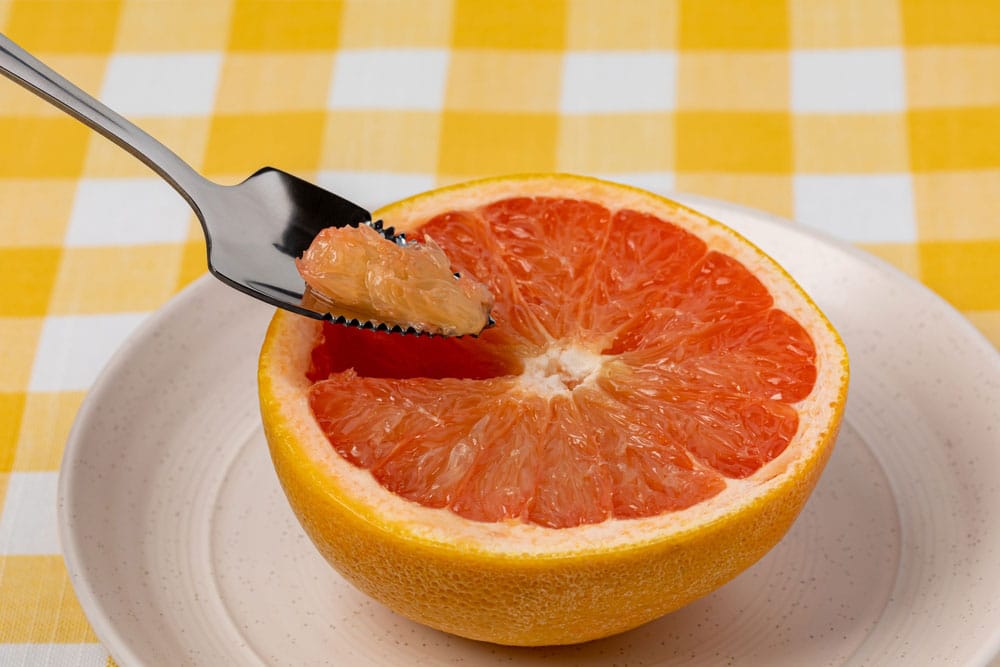Doesn’t it seem like fad diets come and go like the seasons? What social media thinks is nutritional wisdom at its best, fast becomes yesterday’s news. Then, it’s on to the next big fad. It’s enough to make your head spin! It can also hurt your health and pocketbook if you buy into these plans. Unfortunately, this has been going on for at least half a century. Let’s look at some of the less-than-sensible dietary approaches that shook the nutritional landscape and what science says about them.
The Grapefruit Diet: A Sour Dietary Note
Around the mid-20th century, the grapefruit diet arrived on the scene and was destined to captivate dieters for years to come. This “fruity” approach to losing weight gained momentum. The claim? Adding grapefruit to your diet can melt away body fat. The protocol was to eat half a grapefruit before each meal and watch the pounds of body fat melt away. What could be easier?
In support of its benefits, the Scripps Clinic ‘Grapefruit Diet’ study found that obese men and women who ate a half grapefruit prior to meals for 3 months lost more weight than those who didn’t, an average of 3.6 pounds. They also experienced a reduction in insulin resistance, which is positive for metabolic health.
That grapefruit could help with weight loss, as part of a balanced diet, makes sense. Grapefruit are an excellent source of fiber for satiety and have a high-water content. They’re also rich in antioxidants, including vitamin C, although it’s not clear that antioxidants have a major impact on weight loss. However, antioxidants reduce inflammation, which is more common in people who are obese.
There are risks to consuming large quantities of grapefruit though. If you take certain medications, particularly statin medications, grapefruit and grapefruit juice can affect their metabolism, keeping them in your system longer. This buildup could have toxic effects, depending upon the medication. Plus, there’s nothing magical about grapefruit. It may be that when you eat half a grapefruit before meals, you eat less. If you add grapefruit to your diet, make it part of a balanced eating plan. Also, make sure you’re not taking medications that grapefruit affects.
The Cabbage Soup Diet: A Leafy Disappointment
The cabbage soup diet became the rage in the 1950s. It died down after a few years but has been reincarnated several times over the decades. It surged in popularity in the early 2000s after celebrities endorsed it and it went viral. It’s been haunted by absurd claims that you can lose up to fifteen pounds per week eating only cabbage and other low-calorie foods.
Fifteen pounds weekly? Not only would that be unhealthy, but most of the weight loss would be water weight. It’s not hard to see how this diet faced criticism and backlash due to its restrictive nature. And even if you lost weight munching on cabbage and sipping cabbage soup, you would eventually gain it back after returning to a less restrictive approach to eating.
Eating mostly cabbage soup for weeks on end could lead to nutritional deficiencies and you would fall short in protein too. Yes, cabbage is high in fiber and low in calories. It also contains vitamins, minerals, and antioxidants. But enjoy it as part of a more diverse diet.
The Egg Diet: A Yolky Misconception
The egg diet was all the rage in the 1970s, so it’s not surprising that someone built a diet plan around it. The idea is that eating a significant number of eggs each day (4 or 5) supplies high-quality protein that boosts your metabolism and makes you less hungry, so you eat less.
While there is truth to both statements, the metabolic boost you get from eating eggs is modest and short term. Still, science shows the high-quality protein in eggs increases satiety. So, this approach to losing weight has evidence to support it.
Still, the downside of this vintage diet is that eating so many eggs crowds other healthy foods out of your diet. And although studies show it’s safe to consume 1-2 eggs per day in terms of heart disease risk, you’re getting into uncharted territory when you consume 4 or 5 daily. Eggs contain both cholesterol and saturated fat. Depending on your health history, consuming that amount could cause changes to your blood lipids that aren’t healthy.
What led to the demise of the egg diet obsession? It was the idea that too much dietary cholesterol is harmful and increases the risk of cardiovascular disease. Eggs in moderation have been exonerated as a cause of cardiovascular disease. Still, eating 4 or 5 eggs a day is an extreme way to enjoy their high-quality protein and nutrients.
While an egg diet might cause you to lose weight (by suppressing hunger) eating mostly eggs isn’t a sustainable or healthy approach. A balanced diet that includes a diverse array of nutrient-dense foods is better for your gut microbiome and overall health. Plus, the idea that consuming large quantities of protein automatically leads to weight loss is a simplification of a complex metabolic process.
Diet Fads Are Risky
What these vintage diet fads have in common is they focus on weight loss without considering the impact such approaches have on health. A healthy diet doesn’t focus on a single food or even a small group of foods. You need a diverse array of nutrient-rich foods from all food groups.
One of the simplest steps you can take to control your weight is to eat a Mediterranean-style diet. This diverse, whole food approach to eating focuses on lean proteins, whole grains, nuts, seeds, fruits, vegetables, and seafood. Science clearly shows that the Mediterranean diet helps with weight control and is one of the best diets for health-focused people of all ages. It’s endorsed by many dietitians and healthcare providers. Plus, research supports its benefits too. Combine a Mediterranean diet with stress management, quality sleep, and an exercise program that includes aerobic exercise and strength training.
The Dangers of Fad Diets
When you’re tempted to try the latest fad diet or a reincarnated version of an old one, just say no. Adopting fads can lead to serious health consequences, such as malnutrition and electrolyte imbalances. Plus, fad diets can be harmful to your mental health and even lead to disordered eating.
Conclusion
Approach losing weight with a healthy dose of common sense. First, check with your doctor and ensure you don’t have health issues that cause your body to hang on to body fat. Review your medication list with them too. Some medications make it harder to lose weight. Then, get ready to make small, consistent changes to your diet. Build those changes around eliminating processed foods and adding more whole foods to your diet. Focus on making how you eat sustainable, changes that you can live with longer term. That’s the recipe for success!
References:
- Medical News Today. “Grapefruit and Weight Loss.” Medical News Today, 2024. https://www.medicalnewstoday.com/releases/5495#1.
- Fujioka K, Greenway F, Sheard J, Ying Y. The effects of grapefruit on weight and insulin resistance: relationship to the metabolic syndrome. J Med Food. 2006 Spring;9(1):49-54. doi: 10.1089/jmf.2006.9.49. PMID: 16579728.
- Agnoli C, Sieri S, Ricceri F, Giraudo MT, Masala G, Assedi M, Panico S, Mattiello A, Tumino R, Giurdanella MC, Krogh V. Adherence to a Mediterranean diet and long-term changes in weight and waist circumference in the EPIC-Italy cohort. Nutr Diabetes. 2018 Apr 25;8(1):22. doi: 10.1038/s41387-018-0023-3. PMID: 29695712; PMCID: PMC5916888.
- “Fad Diets: Facts and Fiction.” 05 Jul. 2022, https://www.ncbi.nlm.nih.gov/pmc/articles/PMC9294402/.
Related Articles By Cathe:
Beware! Science Shows We Should Avoid Extreme Diets
How Extreme Diets and Yo-Yo Dieting Ages Your Skin
Can Exercise Slow Down Skin Aging?
What Causes Saggy Skin on Your Body & Can You Correct It?
Can Eating Vegetables Make You Look Younger and More Attractive?
The Effects of Exercise on Your Skin
How Skin Ages (And What You Can Do to Keep It More Youthful)
Combat Cellular Aging by Sitting Less


